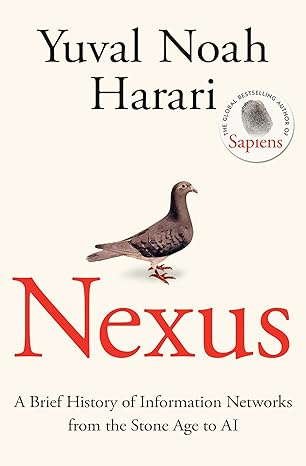Skip to product information









Nexus: A Brief History of Information Networks from the Stone Age to AI
Regular price
Rs. 1,099.00
Sale price
Rs. 599.00
45% OFF
We accept
First Order Free Shipping
Hassle Free 3 Days Return
Secure Checkout
Cash On Delivery
The story of how information networks have made, and unmade, our world from the #1 Sunday Times bestselling author of Sapiens Stories brought us together. Books spread our ideas – and our mythologies. The internet promised infinite knowledge. The algorithm learned our secrets – and then turned us against each other. What will AI do? NEXUS is the thrilling account of how we arrived at this moment, and the urgent choices we must now make to survive – and to thrive.
Books are
a uniquely
portable magic
Related products



![8 RULES OF LOVE [Paperback] Shetty Jay](http://bookala.in/cdn/shop/files/8rulesoflove1.jpg?v=1752956113&width=1200)

